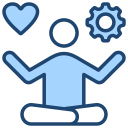
Online Workshops for Boosting Mental Well-being
Discover a transformative approach to enhancing your mental well-being from the comfort and convenience of your own space. Online workshops offer accessible, interactive, and effective ways to support your mental health, regardless of your location or schedule. Whether you are seeking stress relief, mindfulness techniques, or the opportunity to build resilience, participating in virtual sessions can give you practical tools and a supportive community to help you thrive. Learn how these workshops can empower you to prioritize and improve your mental well-being.
Understanding Mental Well-being
The Components of Mental Health
Mental health encompasses emotional, psychological, and social well-being. Each aspect plays a critical role in how we think, feel, and act in daily life. By learning about these components in online workshops, participants gain greater insight into their moods, behaviors, and coping strategies. Workshops often include assessments and discussions to help you identify which areas of your mental well-being may need attention, setting the stage for meaningful growth and personal development.
Why Mental Well-being Matters
Good mental well-being affects nearly every area of life, including relationships, productivity, and physical wellness. Online workshops emphasize that taking care of your mental health is not just about managing illness but about optimizing your full potential. By understanding the importance of mental well-being, participants are encouraged to make routine practices, such as mindfulness or reflection, an integral part of their daily lives for lasting benefits.
Common Challenges in Modern Life
From work pressures to personal struggles, countless challenges threaten our mental well-being. Online workshops create a confidential space to acknowledge and address common stressors such as burnout, anxiety, and loneliness. Skilled facilitators guide you through techniques to identify triggers, build resilience, and find sustainable coping methods that can be readily applied outside the workshop setting.
Convenience Without Compromise
Online workshops eliminate the need to travel, allowing you to participate from your home, workplace, or anywhere with internet access. This ease of access means you can invest in your mental health without disrupting your routine. The convenience also ensures more consistent participation and greater opportunities for engagement, supporting your well-being journey on your terms.
A Wide Range of Expert-Led Topics
Virtual workshops can connect you with leading experts from around the world, offering diverse perspectives on mental health and practical guidance. These sessions often include live Q&A segments, interactive exercises, and resource sharing. With such variety, you can find specialized workshops focused on mindfulness, stress management, work-life balance, or building self-confidence, tailored to your personal needs.
Popular Workshop Topics
Stress Management Techniques
Workshops dedicated to stress management provide participants with actionable strategies to identify stressors, calm the mind, and restore balance. Techniques such as guided breathing, time management, and progressive muscle relaxation are taught, empowering attendees to recognize their unique stress patterns and develop personalized coping routines. These tools can help reduce daily tension and prevent burnout, with an emphasis on sustainable self-care.

Interactive Elements for Engagement
Live Discussions and Q&A
Facilitators encourage real-time engagement through live discussions and question-and-answer sessions. Attendees can share experiences, clarify concepts, and connect over shared challenges. This interactive dialogue not only makes the information more relevant to each participant but also fosters a sense of community, reducing feelings of isolation and promoting mutual learning.
Guided Activities and Exercises
Many workshops incorporate hands-on exercises such as journaling sessions, mindfulness practices, or role-playing scenarios. These guided activities help participants put theory into practice immediately, deepening understanding and creating memorable learning experiences. Being able to try out new techniques in a supportive setting ensures that skills learned can be confidently integrated into daily routines.
Group Sharing and Peer Support
Workshops often facilitate small-group breakouts or whole-group sharing where attendees can discuss their thoughts and reactions. Peer support plays a crucial role in normalizing experiences and encouraging vulnerability. By exchanging stories and advice, participants build connections and reinforce their motivation to pursue positive change beyond the workshop.
Tools and Resources Offered
Most workshops provide downloadable materials such as checklists, reflection worksheets, and action planning guides. These resources allow participants to revisit key concepts, track their progress, and continue their learning independently. Guides are thoughtfully designed to reinforce workshop content and encourage daily application, ensuring that momentum is maintained after the session ends.
Previous
Next
Making the Most of Your Online Experience
Preparing Your Space and Mindset
Creating an optimal environment for online workshops begins with choosing a quiet, comfortable space and minimizing distractions. Setting clear intentions and goals for what you wish to gain from the session enhances focus and engagement. Taking a few minutes before each workshop to center yourself physically and mentally can help you approach the experience with openness and readiness to learn.
Actively Participating for Deeper Learning
Active participation is key to unlocking the value of online workshops. Engaging in discussions, asking questions, and contributing to group activities ensures that you absorb concepts on a deeper level. Facilitators encourage interaction not as a requirement, but as an opportunity to tailor the workshop to your unique needs and interests, making your learning experience truly personal.
Implementing Techniques Afterward
The real power of online workshops lies in the application of skills after the session concludes. By incorporating newly learned techniques into your daily routine and regularly revisiting provided resources, you can solidify new habits and sustain positive changes. Workshops often encourage goal-setting and offer tools for self-monitoring progress, helping participants maintain motivation and accountability long-term.
Choosing the Right Workshop for You
Assessing Your Needs and Interests
Begin by reflecting on your current mental health state and what you hope to achieve from attending a workshop. Do you want to reduce stress, enhance mindfulness, or build assertiveness? Online platforms often provide detailed descriptions and sample content to help you match your needs with the right workshop, ensuring that your investment yields maximum personal growth.
Evaluating Facilitator Credentials
An effective workshop is rooted in knowledgeable and experienced facilitation. Take time to review the background of workshop leaders, including their certifications, specialties, and previous participant feedback. Trustworthy facilitators foster safe, inclusive spaces and use evidence-based techniques to ensure a quality learning experience for everyone involved.
Considering Format and Accessibility
The structure of online workshops varies, so consider which format suits your learning style best. Some prefer live, interactive sessions, while others thrive with self-paced modules. Check for features like closed captioning, multi-language support, and mobile compatibility to ensure your accessibility needs are met. Choosing the right format creates a more enjoyable and effective experience tailored to your circumstances.
